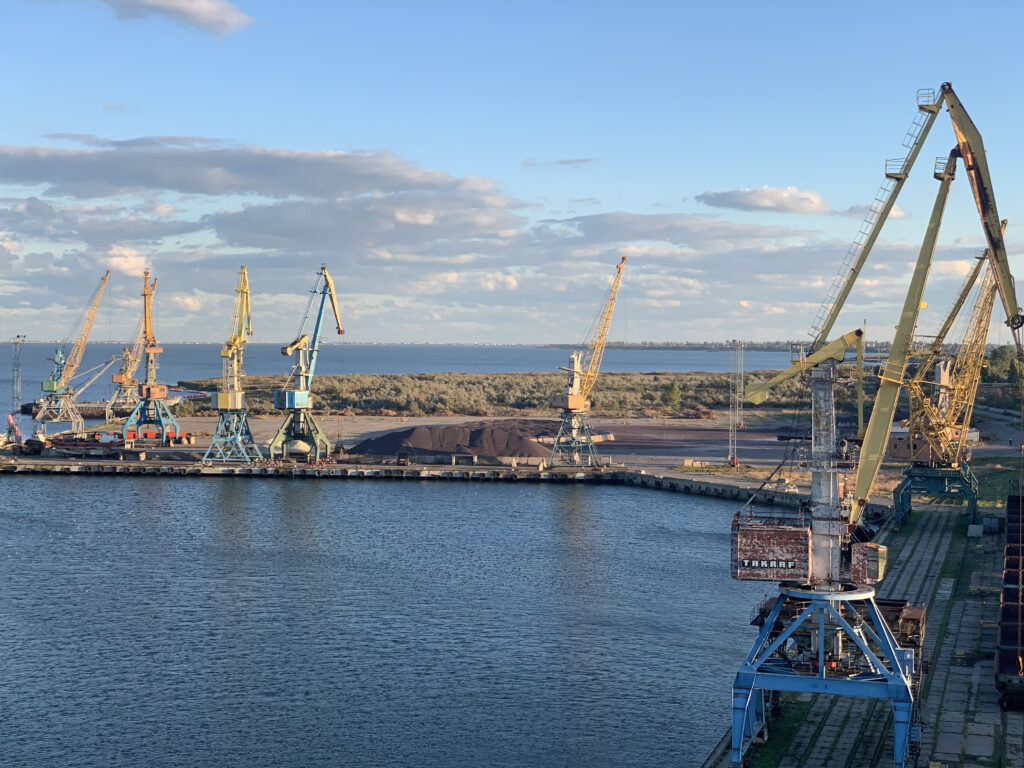Inspection of ships in the JCC is blocked only by russia

The work of the Joint Coordination Center (JCC) was completely stopped on April 11: during the day, not a single vessel in the Bosphorus was inspected.
The JCC carries out inspections of vessels that are heading along the “grain corridor” to or from Ukrainian ports. We will remind that representatives of Ukraine, the UN, Turkey and russia work at the Center.
On April 11, there was no inspection of the vessel within the “grain corridor”. As noted in the UN, the Center was unable to carry out inspections because “the parties needed more time to reach an agreement on operational priorities.”
After intensive discussions within the JCC, inspections resumed on Wednesday, April 12. As always, the UN called on “all participants” to fulfill their responsibilities. But the sabotage of inspections took place only at the initiative of one party — russia. USM learned about this from a source familiar with the situation.
Since mid-March, the russian side has been trying to change the sequence of fleet inspections. Thus, representatives of russian federation unilaterally registered vessels selectively, without providing any explanations.
According to the available information, the Ukrainian side categorically did not agree with this approach, because it could not allow attempts from outside to manage the flow of cargo and the sequence of inspections, which means the handling of the fleet in ports. The actions of the russian side violate the planning system agreed by the market and all stevedores of the three ports.
Important: External interference in the order of inspection of the incoming fleet and, as a result, in the dates of the start of movement and loading of the fleet at Ukrainian ports, is a direct violation of point “C” of the Black Sea Initiative. It states that all activities in the territorial waters of Ukraine are carried out under the authority and responsibility of Ukraine.
When there was no vessel left that had previously been registered by all parties to the JCC, it was important to prevent external interference in the order of vessel processing. Then Ukraine was forced to cancel all previously submitted applications, and submitted only those vessels that were to be inspected the next day. Such a step was necessary to deprive the russians of the opportunity to randomly select ships from the general list.
According to the interlocutor of the USM, since March 30, the maximum tension has been growing on this ground. Literally every day, including on weekends, daily inspection plans were coordinated “with combat”. Ukraine tried to prevent the JCC from registering and inspecting vessels that Russia wanted to “advance”. It was also important to follow the plans of the Ukrainian ports participating in the initiative.
In the end, for several days, the JCC managed to register vessels from the list of Ukrainian ports almost in the agreed sequence, and thus avoid stopping the work of inspections in Istanbul.
On Monday, April 10, the tension reached a maximum, and the russian side did not register a single vessel submitted by Ukrainian ports. Because of this, the JCC was unable to make an inspection plan for Tuesday, April 11. According to available information, this was the real reason for stopping inspections that day.
On Tuesday, due to the efforts of the parties of Ukraine, Turkey and the UN, it was possible to resume the work of inspections of the SCC. According to UN data, at that time, three ships passed inspection at the entrance: two of them were heading to the port of Chornomorsk, and one more – to the port of Odesa. On April 13, one ship left the port of Odessa for the Bosphorus.
The russian side has only one lever — to stop fulfilling its obligations. Russian federation is constantly threatened by this in the SCC and the whole world, as can be seen from their official statements.
Earlier, USM reported that russian federation is once again threatening to abandon the “grain agreement” if the West does not remove “obstacles to Russian exports.” This was stated by the Minister of Foreign Affairs of the Russian Federation Sergey Lavrov during his visit to Turkey on April 7.
In turn, according to Turkish Foreign Minister Mevlüt Çavuşoğlu, Turkey advocates the lifting of sanctions against russian federation , which allegedly prevent the import of russian grain.
According to Çavuşoğlu, in order to overcome the global food crisis, it is necessary to “ensure the export of both Ukrainian and russian grain.”
We will remind, in March the prices of food in the world decreased again. This trend has been observed during the last year. The March index for food products decreased by 2.1% compared to the indicator in February. This is evidenced by the data of the Food and Agricultural Organization of the United Nations (FAO).
Over the past year, the index has fallen by 20.5%. In particular, the restoration of the Black Sea grain initiative in November and March contributed to this drop.
In order to prevent the Black Sea Initiative from being blocked by the russian side, the Turkish and UN sides are currently making efforts to develop and introduce a new mechanism for determining the sequence of inspections of the incoming fleet. It could ensure that the Initiative continues to develop more sustainable technical solutions.
Olga Horbenko.


